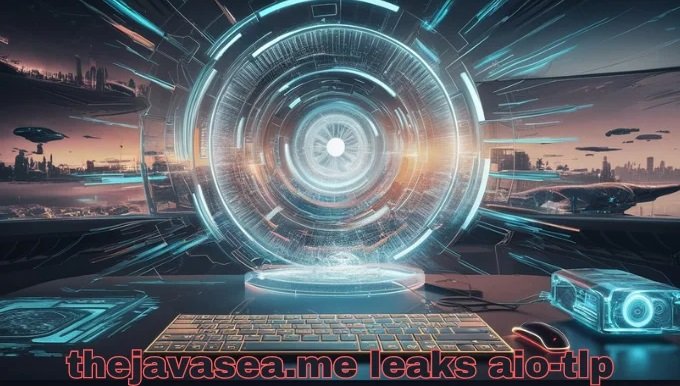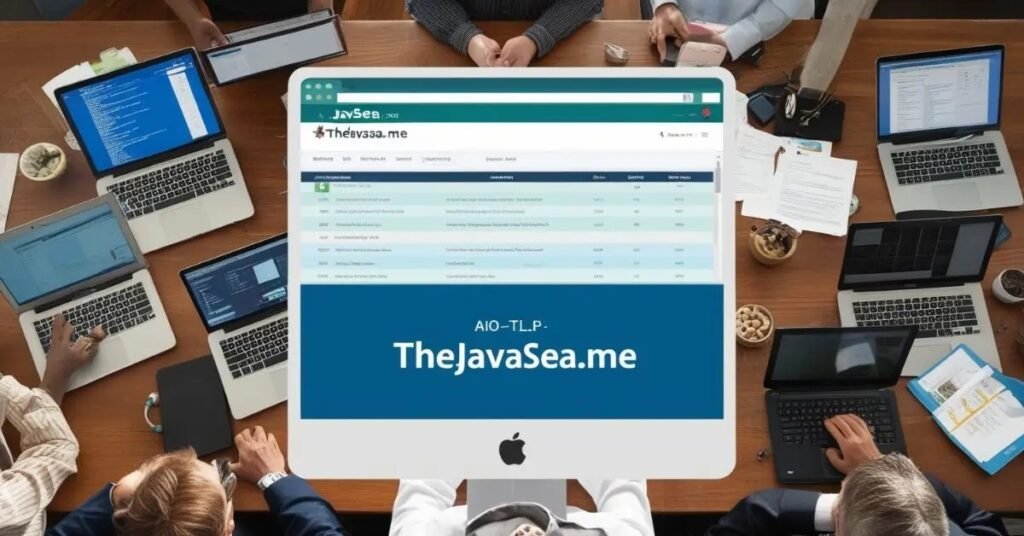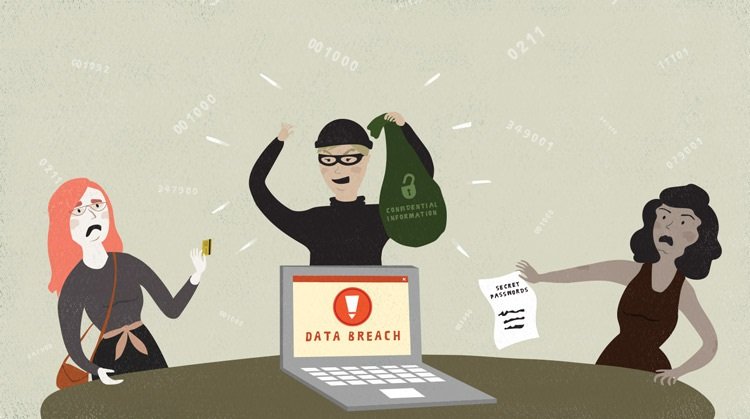
Thejavasea.me Leaks AIO-TLP
The rise of digital technology has brought with it numerous benefits but also significant challenges. One of these challenges is the prevalence of leaks and breaches of sensitive information. Recently, the website thejavasea.me has made headlines for its involvement in leaking data, particularly under the term “thejavasea.me leaks AIO-TLP.” This article aims to provide an in-depth understanding of these leaks, their potential consequences, and the measures individuals and businesses can take to protect themselves.
Table of Contents
What is thejavasea.me Leaks AIO-TLP?
Thejavasea.me is a website associated with the unauthorized distribution of sensitive and private data, often involving content that is meant to be restricted or classified. The term “AIO-TLP” in this context refers to an All-in-One leak package that encompasses a variety of sensitive data, often bundled together for easy access. These leaks may include personal information, proprietary business details, software exploits, or other confidential content.
While the exact nature of what is leaked varies, thejavasea.me has gained notoriety for being a hub for cybercriminals and hackers looking to distribute this information. AIO-TLP packages make it convenient for individuals to access large amounts of data in one go, increasing the risks of widespread distribution.
Understanding AIO-TLP: What Does It Mean?

AIO-TLP stands for All-In-One Traffic Light Protocol, a classification system used in cybersecurity to signify the level of sensitivity or confidentiality of shared information. The Traffic Light Protocol (TLP) uses four colors to signal how far information can be distributed:
- Red: Highly sensitive data that should not be shared outside a specific group.
- Amber: Information that is sensitive but can be shared with specific trusted parties.
- Green: Data that can be shared within a larger community but not publicly.
- White: Information that can be shared freely with the public.
When the term AIO-TLP is used in connection with thejavasea.me leaks, it indicates that data meant for restricted or controlled groups has been leaked into a wider, often unauthorized, audience.
How Do Leaks Occur?
Data leaks from websites like thejavasea.me can occur through various channels. Understanding these common methods is crucial for protecting oneself from becoming a victim of leaks:
- Hacking: Cybercriminals infiltrate systems to steal sensitive data. Once obtained, this data is often leaked on dark web forums or sites like thejavasea.me.
- Phishing: Attackers trick individuals into providing sensitive information by masquerading as legitimate organizations or contacts.
- Insider Threats: Sometimes, employees or associates with authorized access to data intentionally or unintentionally leak confidential information.
- Weak Security Practices: Poor password management, outdated software, or the absence of encryption can make systems vulnerable to attacks, leading to leaks.
- Exploit Kits: Pre-packaged software designed to find and exploit vulnerabilities in systems, making it easier for attackers to gain unauthorized access.
The Impact of thejavasea.me Leaks

The consequences of leaks from thejavasea.me can be far-reaching, affecting both individuals and businesses. Below are some of the significant impacts:
Personal Consequences
When personal information is leaked, individuals can face identity theft, financial loss, and emotional distress. Data such as social security numbers, bank account details, and addresses can be used by cybercriminals to commit fraud or impersonate victims.
Business Consequences
For businesses, thejavasea.me leaks can result in:
- Loss of intellectual property: Proprietary business information, product designs, or software code can be stolen and sold or shared with competitors.
- Reputation damage: Leaks can tarnish a company’s reputation, leading to loss of customer trust and future business.
- Legal repercussions: Companies may face lawsuits from customers or partners whose data was exposed in the leak.
- Financial losses: Costs associated with breach response, including legal fees, fines, and efforts to patch vulnerabilities.
Cybersecurity Threats
Leaks can expose vulnerabilities within systems, making it easier for cybercriminals to launch attacks. Once leaked, exploits and backdoor access methods are widely shared, leading to more breaches, further complicating efforts to secure systems.
Examples of Leaks on thejavasea.me
The types of leaks seen on thejavasea.me are varied but typically include:
- Personal Data: Including identification numbers, financial records, and personal communications.
- Corporate Information: Business emails, trade secrets, and financial reports.
- Software Exploits: Leaks of zero-day exploits (vulnerabilities unknown to the software vendor), allowing malicious actors to attack systems without detection.
- Media Content: Copyrighted movies, music, or TV shows, shared without authorization.
Major Leak Events
- Financial Institutions: On several occasions, financial data including customer bank records have been found leaked on the site, leading to cases of identity theft and fraud.
- Corporate Emails: High-profile companies have had internal communications leaked, exposing sensitive negotiations or business strategies.
- Proprietary Software: Source codes for proprietary software have been leaked, causing considerable financial loss and competitive disadvantages for affected companies.
How to Protect Yourself from Data Leaks

In light of the dangers posed by leaks on sites like thejavasea.me, it is important to take steps to protect yourself:
- Use Strong Passwords: Ensure your passwords are complex, containing a mix of letters, numbers, and symbols. Avoid easily guessable information like birthdates or common words.
- Enable Two-Factor Authentication (2FA): Adding a second layer of security can significantly reduce the risk of unauthorized access.
- Stay Updated on Cybersecurity Threats: Awareness is key. Stay informed about the latest threats and security best practices to protect yourself and your organization.
- Regularly Monitor Accounts: Check your bank statements, social media, and other online accounts for any unusual activity.
- Use Security Software: Antivirus and anti-malware tools can detect and block suspicious activity. Make sure to update your software regularly.
- Be Cautious with Emails: Avoid clicking on suspicious links or downloading attachments from unknown sources to protect yourself from phishing attacks.
What to Do if Your Data Has Been Leaked
If you suspect that your personal or business data has been leaked, taking immediate action is essential:
- Change Your Passwords: Immediately update your passwords for any compromised accounts. Consider using a password manager to generate and store strong passwords securely.
- Monitor Financial Accounts: Check for unauthorized transactions and consider placing a fraud alert or credit freeze on your accounts.
- Contact Affected Organizations: Inform companies whose data has been breached and follow their guidance for securing your information.
- Seek Legal Advice: In cases of significant financial or reputational harm, consider consulting with a cybersecurity or legal expert.
Conclusion: Thejavasea.me Leaks AIO-TLP
Thejavasea.me leaks AIO-TLP serve as a reminder of the growing risks in the digital age. Whether you are an individual or a business, the exposure of sensitive data can have devastating consequences. Understanding how these leaks occur and taking steps to protect yourself is vital in today’s cybersecurity landscape. By strengthening security practices and staying informed, you can reduce the risk of falling victim to these leaks.
FAQs about Thejavasea.me Leaks AIO-TLP
What is thejavasea.me?
Thejavasea.me is a website known for hosting leaks of sensitive information, ranging from personal data to corporate secrets and software exploits.
What does AIO-TLP stand for?
AIO-TLP stands for All-In-One Traffic Light Protocol, a classification system used in cybersecurity to indicate the sensitivity of shared information.
How do leaks typically occur?
Leaks can occur due to hacking, phishing, insider threats, or weak security practices.
What are the consequences of leaks?
Leaks can lead to identity theft, financial loss, legal repercussions, and increased cybersecurity risks.
How can I protect myself from data leaks?
You can protect yourself by using strong passwords, enabling two-factor authentication, monitoring your accounts, and using security software.
Also read – Revo Technologies Murray Utah






